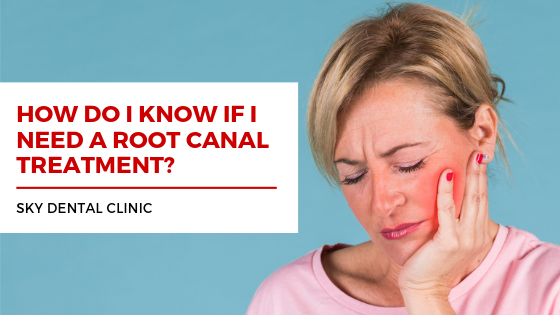The term ‘Root Canal’ can refer to as the inner part (passage) of the tooth between the pulp and the tooth roots. The root canals contain nerves and blood vessels. Once an adult tooth have emerged, the only purpose the nerves sense is reacting to the stimuli. Hence, in the procedure of Root Canal Treatment, the infected material is been removed and relieve Root Canal Pain.
You must see you dentist and get a Root Canal Treatment under any of the following Circumstances.
Pain:
When pain is present, it can indicate a necessity for a root canal. Even if the intensity of the pain is dull or sharp, you must visit your dentist without any further delay. This will ensure that the problem doesn’t get out of hands.
Swelling and Gum Tenderness:
Swelling does not always indicate that there is a need for root canal treatment. Though, when it emerges alongside any type of a tooth pain, it can indicate the necessity of such treatment.
Chipped or Cracked Tooth:
When a tooth is chipped or cracked, it can expose the nerves beneath the surface of the tooth and lead to infection. An Infection in a tooth’s root can spread and worsen the case. Therefore, an untreated infection requires a root canal treatment to prevent further damage.
Deep Decay:
Once the teeth has been deeply decayed, no amount of brushing, flossing or rinsing your mouth with mouthwash can solve the problem. If a cavity is been neglected for too long, it can spread to the root and hence, root canal treatment should be considered as an option during such cases.
Extreme sensitivity to heat or Cold:
Another common sign that you may need root canal treatment is Sensitivity. Cold or Hot food can cause a lot of pain for those with an infected tooth. When you consume ice or tea and avoid crunching or drinking on one side of your mouth to avoid a painful tooth, damaged blood vessels and nerve endings may be to blame.
If you suspect a problem in one or many of the above cases, you surely need to rush to your dentist and get the problem solved before it gets worsen.
This article is intended to promote understanding of and knowledge about general oral health topics. It is not intended to be a substitute for professional advice, diagnosis or treatment. Always seek the advice of your dentist or other qualified healthcare provider with any questions you may have regarding a medical condition or treatment.



What a great content, I really liked your content .Wish you all the best. I am a regular visitor of your website, please keep writing.